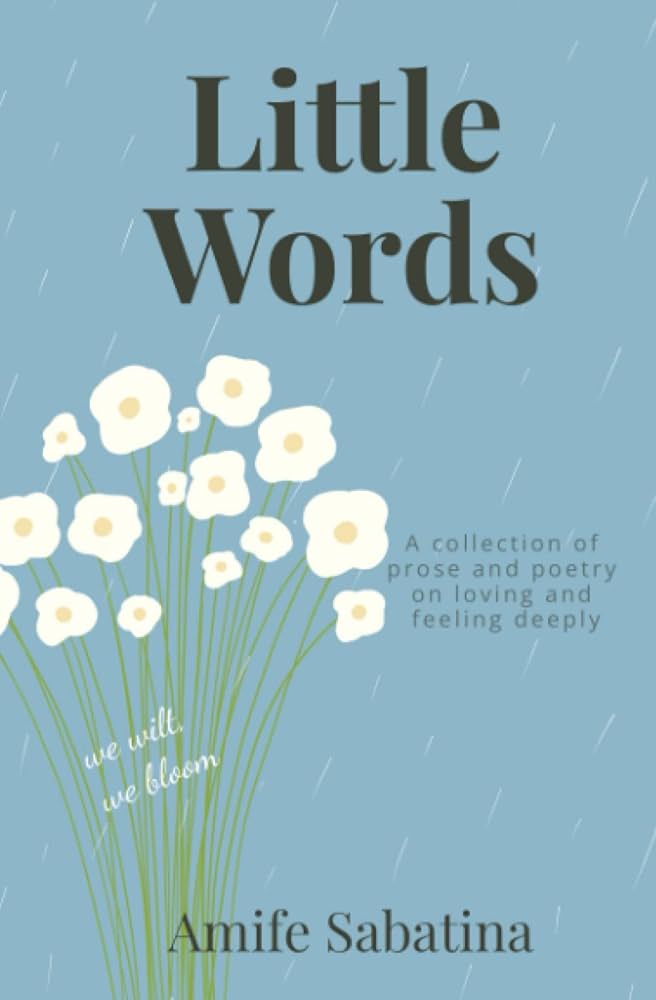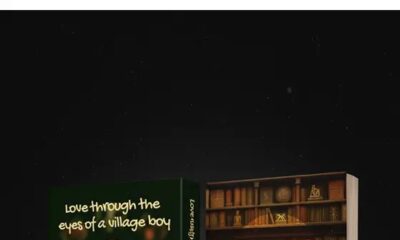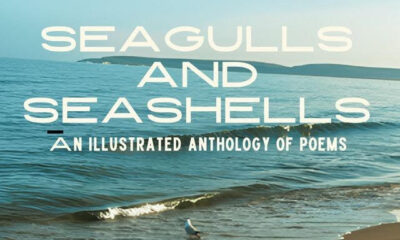Features
BN Book Review: Little Words by Amife Sabatina | Review by Roseline Mgbodichimma
Little Words reads like an honest cathedral of letters, where human emotions are assembled. Reading this book is a journey.

The ability to bend language to capture feeling is an art Amife masters in her book “Little Words”. This hybrid collection of poetry and prose revels in truth, beauty, nostalgia and melancholy. There are eleven chapters in the book, each chapter categorised to show phases of the author’s life. Little Words reads like an honest cathedral of letters, where human emotions are assembled. Amife’s words serve as a comforting presence, pausing to share in collective uncertainties or pain, to say, me too, in a deeply healing way. Amife is simply a writer who charts through the delicate and the unspoken in very seamless methods. As if the reading of ‘Little Words’ wasn’t already smooth enough, the author shares a list of songs she listened to, on repeat while writing the book. From M83, To Aurora, To Lana Del Rey, there is a sound for every chapter. Each page of poetry and prose in this collection is an interrogation of a feeling, an exploration of a familiar emotion, a lived experience, or a thought.
The illustrations in ‘Little Words’ are so well done. To understand the dichotomies of youth and old age, there is an illustration of two hands clasped together in the poem ‘My Grandmother’s Hands.’ To properly visualise aloneness and the seclusion of self, the illustration of a girl facing the moon in the poem ‘Solitude’ paints a vivid picture. Spiral lines are illustrated to depict our unending search for happiness as humans and so much more. Little Words is layered with subtle, implied and outright meanings. The prose is honest and written in a way that is unashamed and embraces flaws and uncertainties.
The book’s first chapter, Childhood, begins with ‘Born,’ a prose piece that acknowledges mortality. There is an illustration of a door that very quickly shows that the world we live in is simply a passage and that to be born is also to be prepared to die. ‘The Great Outdoors’ and many other pieces of prose and poetry in ‘Little Worlds’ display the author’s admiration for nature, with lines like, ‘Nests and flocks of singing birds / Are singing like my lips / Bodies of rippling waters gather / And dance like my feet.’ In ‘Simplicity’ life is simple, as simple as playing folk games, reading Enid Blyton’s novels, falling asleep on the couch and collecting leaves as money. The Poem ‘The Smell of Books’ is a true reader’s reality, the lines, ‘few things/curl me up in a corner / and vanish the rest of the world,’ say it all. This chapter ends with ‘A Letter to My 10-Year-Old Self’ which is a moving epistle for any growing child worried about growing up.
Chapter Two is titled Clay Body and it begins with prose about bodies and mirrors and begs the question, what is truly broken, the perception of self or the mirror? This piece talks about the internalising of shaming. How we constantly check ourselves to see if we still fit into accepted societal standards of size and beauty. There is resignation here, no push back, Like the poem says ‘But What does it matter, when my wrist will soon fit / into the circle your thumb and index finger makes.’
In Chapter Three things get harder. The piece ‘Colonialism; The Remainder Tools’ poses the thought-provoking question, What thought is my own, What language is my own, The Mother Tongue or the colonisers’ lingo? In ‘My Grandmother’s Hands’ we read about wrinkles, wrinkles that tell a story about hands that were tilled through slavery and what the history means for the future generation.
Chapter four is about personhood, who we are in the grand scheme of things. There is a quest here to not be defined or labelled one thing. It’s a chapter about purpose and discovery which poses the question – Does our revelation, query and acceptance of self happen in Solitude? Or in the company of a Kindred Spirit, a soul mate, perhaps.
Chapter Five is titled ‘Sweet Worlds.’ This chapter is about love, living, the sky, the ocean and gratitude. Amife is skilful at connecting human and non-human nature to reveal a solid and poignant relationship. In a world where everyone’s attention span is hanging by a digital thread, Amife’s writing calls for a standstill, wills readers to be present, to not be hesitant about enjoying the mundane and acknowledging the natural. This section speaks of lakes, oceans, seas, skies, fruit, and beyond. Amife’s poetry and prose are simple, evocative and feel like a warm hug, the kind that very gently resets a person.
Chapter six is titled ‘Older’. The writing here is about youthfulness, anxiety and ageing and in many ways is akin to the atmosphere in Lenrie Peters’ ‘The Panic of Growing Older.’ Peters reflects on missed opportunities and ageing, much like Amife’s prose ‘Youth, A Drying Stream’ which puts societal pressures, ageing and the loss of youth in perspective.
Chapters seven and eight are about the fragility of human relationships and what it is to be human, to exist as people, moving and feeling in this world. It’s about desiring companionship, loneliness and yearning. In the prose piece ‘Love Leaving’ unresolved heartbreak and the difficulty of accepting loss is the center. The use of the repetition “it is not okay” heightens the sense of unresolved grief, showing poignantly the lingering emotional weight of lost love. In the very exalting and cinematic prose piece ‘Butterfly, Katydid, Starfish, Hoopoe, Robin’ we see the personas moving as Butterfly, Starfish, etc. There is a kind of motion, an oscillation between human and non-human nature to honour moments and the interlocking of self in love and kinship. It’s a deeply moving and honest piece.
There is a huge presence and exaltation of sisterhood in ‘Little Worlds.’ Women and girls are safe in Amife’s collection. In ‘Tears, ’ a very poignant poem, there is contemplation. The speaker also wants to know, ‘What does it feel like to be a man? / And be told that crying is not for you / Break a glass / Punch a wall / But from your eyes, A tear mustn’t drop.’ Society will have the answers.
Chapters Nine and Ten take us on a journey of healing and how we must redefine perfection for ourselves. These chapters are about accepting our version of aliveness, about letting things be as they are. It’s about being kind to our God-given bodies, about rain, about breathing, about letting the day be day and night by night, about rest and healing, about realizing that life is a journey and discovering that growing old is a blessing in this big wild world.
The last and eleventh chapter is titled, ‘Dear Now’ and the poems here show clearly that in life, the one thing that is guaranteed is the passage of time. ‘The Fear Swap’ is bold in outlining the existential fear about death, and the tension between the past and the future. The comparison of the speaker’s life to the occasion of the wilting hibiscus flower declares the speaker’s longing for real, lived experiences and a kind of resilience in this longing. The line ‘The hibiscus could turn a dead purple by morning, but I’d still be here’ depicts this clearly.
‘Little Worlds’ by Amife Sabatina is ideal for a broad range of readers, especially those who are trying to fall back in love with reading. Reading this book is a journey. The self-reflective and contemplative tone with which the book was written will work for readers who desire an expansive canvas, where deliberations on living, relations, dying and the overall human condition are celebrated or put into contention.





















